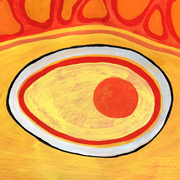|
spacing in vienna posted:Essentially, take a deep breath, really think through the beliefs coloring your feelings, and see if they're legit. Are you saying that's not what CBT is? I'm really curious about the answer to this as this is my experience with CBT as well. My therapist does some CBT and so far it's all about techniques to help you reframe the way you think about things rather than saying a thought is "wrong". Rather, it's about understanding where that thought comes from and how to help cope with the situations when they do happen.
|
|
|
|

|
| # ? May 5, 2024 06:22 |
|
spacing in vienna posted:What countries have outlawed CBT? I did some searching and couldn't find anything about that -- just bans on forms of conversion therapy or similar treatments for autistic patients, which are good bans but aren't CBT. You are right. I looked after reading your post and couldn't find anything about that either. I'm wrong and not sure why I got that from, sorry. Might have been from a colleague who worked in Berlin for a while or from one of the magazines I get. I'll take a look into this more. I know someone brought up in an AMFT leadership sometime ago to ban it, but it's kind of like when a politician writes a bill they know won't get passed, it's just to put it into people's minds. I hope in the future it will happen. What you described is CBT yeah. I don't feel comfortable kind of digging into your example too much so I'm gonna make something similar and go from there: "I can't get a job, my mom is are going to hate me, no wonder, I'm worthless and I'm really stupid, and I'm going to be homeless." What actually happened: I didn't get the job. Belief: I'm stupid and worthless. What if your mom is a piece of poo poo or an alcoholic or has a personality disorder and really does hate you? This is where CBT is utterly incapable of helping. What needs to happen is the client needs to grieve for the pain of having a mother so broken that she cannot love her child. That unprocessed grief has invaded every corner of their child's brain and huge portions of their life have been affected by it. There is no processing with CBT. What if I will be homeless? The entire premise of CBT is not to dig down, if your therapist does, they are now going off the path and onto another modality (what sounds like Psychodynamic in your post Chip McFuck. But even if we go back, before this example took a turn, what will usually happen is the brain will circumvent the new "healthier" cognitions, because the underlying trauma/pain/whatever was not processed in the parts of the brain that stores these things. So even if the bandaid worked, it won't work for longer than 2-3 years. https://ebmh.bmj.com/content/8/3/75 "Essentially, take a deep breath, really think through the beliefs coloring your feelings, and see if they're legit. Are you saying that's not what CBT is?" Eh I mean, every modality or theory might ask you to do that. If appropriate. Also, what about the origin of those beliefs? They don't come from vacuum. So you've whack-a-moled one belief, what happens when the brain creates another? That's why it's a bandaid at best, damaging at worst. Anyway you're describing labeling, which is good. That and the cognitive distortions came from Freud, then CBT came along and truncated the bottom 95% of that pyramid so that mental health could be quantified and put into units. Think about the time when it gained steam, what was happening at the time? Diet plans, get rich quick schemes, insurance companies, neoliberal policies, etc. It's just an extension of the zeitgeist. It has the same lasting power as every diet and gastric bypass because it doesn't address the root issue. It's like going to homeless people and giving them food, ONCE. Doesn't solve the issue except right then and one can easily draw the connection to the pervading socio-economic philosophies of its day. Car Hater posted:I'll throw in a dumb question that torments me and has caused me to quit half a dozen therapists by now Not a dumb question at all. There are a lot of ways of ways to answer it. Sometimes people think that if they were to get "better" it would ruin their family. They unconsciously choose to stay this way to protect their family, to keep their family in its homeostasis. The Family Idiot usually thinks (unconsciously) if they were to stop being the Family Idiot the family would break apart, or worse, they'd be exiled from it. In some families this actually happens. The situation is really common with addicts/alcoholics. Are you in that boat by chance? The act of becoming aware of this unconscious need to protect a family or becoming aware of any unconscious drive is called catharsis. Catharsis is a freeing feeling. It frees us from the role we had in our family and it's usually what prompts people to choose to want to get better as you put it. Me, as a patient, I want to "get better" because I want to be happier, and less bound by my fears, problems, whatever. There was a time in my life when those things that bound me were also protecting me in some ways. Maybe that's happening with you? I'll say this though, most humans suffer because they're not grieving. They aren't connected to their pain and their feelings. An addiction is anything that divorces you from your feelings. It can be anything: weed addiction, working out, alcohol, cigs, porn, gambling, climbing a corporate ladder, avarice, whatever. If someone's suffering but not crying, something's wrong. They need to cry and grieve for whatever they lost, or don't have but need. thehandtruck fucked around with this message at 03:56 on Sep 23, 2022 |
|
|
|
thank you for this thread op, it's been really enlightening so far. i'm interested in what you mentioned about narcissists struggling with therapy because it challenges them on a basic survival level. an egg fucked around with this message at 04:18 on Oct 13, 2022 |
|
|
|
|
Probably my biggest exposure to an in-depth depiction of therapy is the TV show the Sopranos-- have you watched, it, and if so, what do you think of it?
|
|
|
|
RapturesoftheDeep posted:Probably my biggest exposure to an in-depth depiction of therapy is the TV show the Sopranos-- have you watched, it, and if so, what do you think of it? I haven't watched in a few years but from what I remember it's the most Freudian show or movie ever created. Dr. Melfi's style is more Psychoanalytic (not the same as Psychodynamic) and its oldschool and more common on the east coast but these days most therapists in America are going to be a lot more conversational and easier to talk to. I will say though that that style is extremely effective and even though it's less common clients will do great work with it. If I ever stop seeing my current therapist I will look for that style for my next one. Dr Melfi breaks some rules though. Her therapist and I think supervisor at one point is a close friend who she invites over for dinner. You can't do this these days but honestly it probably happens more with the older Psychoanalytic crowd. The REAL no-no is when she coyly reveals at the dinner party that her client is Tony Soprano. And IIRC Eliot even says some things that could be revealing what she talked about in her own therapy at the dinner party and ofc that's breaking confidentiality. Maybe that was intentional on the show's part, to show they are breaking rules and boundaries too. The part where she talks to her therapist Eliot about her client are extremely accurate, and her getting mad at her therapist are perfect. The parts where Tony is fuming at her are also extremely accurate. But, and I don't know if this is evident to lay people, but her re-accepting him as a client even after she was in physical danger was an example of her counter-transference coming up. It was a no-no not only because she should have said "absolutely not", but she said yes because of her own unprocessed poo poo that she was dishonest about and not ready to process. It's such a big red flag and the show's depiction of her unprocessed material coming through is perfect. Tony's sexual and asexual love for Dr Melfi are also depicted flawlessly. This is called erotic transference and not only is it normal but it is evidence the therapeutic relationship has reached a deeper level, and the client has become or is starting to become Attached (sorry for the jargon again) to the therapist. So yeah, I don't think most people are going to find a therapist who acts like her these days, but his responses to therapy both in and out of the room are spot on.
|
|
|
|
an egg posted:thank you for this thread op, it's been really enlightening so far. Definitely possible, but very difficult. It's very sad because in my very shallow experience with NPD people progress doesn't really happen until years of therapy, I've heard a decade sometimes. Whereas most people will see at least some kind of relief 5-15 sessions in. There's a strong paradox that exists within NPD and it makes therapy almost impossible, which is why they often unconscious construct scenarios to get the therapy to end so they don't usually make into those years needed. If you feel comfortable sharing, how did the therapy end with your example?
|
|
|
|
can i edit this out? it's not my business to share!
an egg fucked around with this message at 14:47 on Oct 6, 2022 |
|
|
|
|
thehandtruck posted:
Do you have a link or information about the study you’re referring to here? I haven’t heard of it and I’m interested
|
|
|
|
Serrath posted:Do you have a link or information about the study you’re referring to here? I haven’t heard of it and I’m interested https://en.wikipedia.org/wiki/Cognitive_behavioral_therapy#Criticisms "Additional sub-analysis revealed that CBT studies where therapists in the test group were instructed to adhere to the Beck CBT manual had a steeper decline in effect sizes since 1977 than studies where therapists in the test group were instructed to use CBT without a manual. According to one reviewer, Dalal connects the rise of CBT with "the parallel rise of neoliberalism, with its focus on marketization, efficiency, quantification and managerialism", and he questions the scientific basis of CBT, suggesting that "the 'science' of psychological treatment is often less a scientific than a political contest".[226] In his book, Dalal also questions the ethical basis of CBT."
|
|
|
|
When I began my IOP CBT program, they started off by telling us that it was created by CEOS who were so stressed out, they were having heart attacks at a young age. I knew I was in for a real treat after that.
|
|
|
|
thehandtruck posted:https://en.wikipedia.org/wiki/Cognitive_behavioral_therapy#Criticisms I don’t want to pull your thread into the direction of debating CBT efficacy because I suspect that would be very tedious but your quote/link (and associated reference) 1. Doesn’t assert what you say in the post I linked. The study doesn’t say that “the control group’s clients reported feeling worse after weeks of therapy” or even that “they were doing other modalities [than CBT]” 2. Is selectively edited so you don’t include in the quote the explanations given by the authors of the study to explain the declining effect sizes in studies conducted after 1977. I’ll pull the rest of the quote from the Wikipedia article you linked quote:Additional sub-analysis revealed that CBT studies where therapists in the test group were instructed to adhere to the Beck CBT manual had a steeper decline in effect sizes since 1977 than studies where therapists in the test group were instructed to use CBT without a manual. The authors reported that they were unsure why the effects were declining but did list inadequate therapist training, failure to adhere to a manual, lack of therapist experience, and patients' hope and faith in its efficacy waning as potential reasons. The authors did mention that the current study was limited to depressive disorders only. The difficulty is that several meta analyses have been published since that have shown the opposite to Johnsen & Friborg’s 2015 study including one analysis published the year later using the same dataset but using more stringent statistical techniques to control for the confounding introduced by study designs included in the original meta analysis: link here. E: just editing in the following, I generally try to avoid editing my posts but I would also highlight the following study also published since Johnson & Friborg’s review, it’s a major review of systematic reviews published in 2017 which demonstrated CBT had at least equivalence to psychotropic medication and superiority to other talk therapies across 140 systematic reviews investigating treatment for Major Depressive Disorder, link here. I highlight this study over the plethora of other studies on the same topic because this represents the largest scale study to date investigating this topic using the best quality evidence available. I’m not trying to argue for the efficacy of CBT or deny that there aren’t valid criticisms of this approach. But a lot of what you’re posting simply isn’t supported by empirical research unless you take a very selective reading of the broader literature. Controversy within the field is good but if you’re going to make extraordinary claims like CBT is not effective, I think you need to support that with stronger evidence than linking the "controversies" page of a Wikipedia article. Serrath fucked around with this message at 09:46 on Sep 27, 2022 |
|
|
|
thehandtruck posted:Not a dumb question at all. There are a lot of ways of ways to answer it. I'm mad addicted to weed but lol it *was* a dumb question. You have to imagine this in an angry tone of voice rather than a depressed one: I don't want to be happy, I want to escape the torture of awareness. Catharsis and happiness are inadequate and hollow, like all other forms of gratification. I mask up all day every day because I've lost my tolerance for humanity. I crave annihilation.
|
|
|
|
tbh a cbt debate would be useful for this thread. a lot of people are in a position where they can either access cbt or no therapy at all, so it would probably help them going in to have a brief overview of what it is, what's wrong with it, and what it gets right
|
|
|
|
|
i tried three cbt therapists and got nowhere, because all three of them were laser-focused on getting me a job but because of the very nature of the therapy, wouldn't look into why i couldn't keep a job. so when i said i get overstimulated and melt down, all three took the approach that these symptoms were due to anxiety and if i just learnt to think the good self-affirming thoughts rather than the bad anxious thoughts at work, the symptoms would disappear. of course they didn't disappear, and when i finally found a psychoanalyst, they were interested enough in my brain holistically to actually listen to my description and say "um, that's not a psychological thing." lo and behold, undiagnosed brain injury that i'd wasted years trying to positively think my way out of.
|
|
|
|
|
In my experience, CBT boiled down to making a chart weighing the evidence for or against my problems existing. They seemed to think they could rationally convince me that I shouldn't be struggling. It was the exact opposite of validation, and I think validation is vital. I'm a huge fan of peer support these days (support groups and even shitposting with people experiencing similar stuff). I think it takes real understanding of what someone's experiencing to help them. That doesn't enter the equation in CBT, because they think they already have the tools to solve every problem. I had one especially vile CBT "therapist" who dismissed all of my concerns in a snide manner, and acted like I was making things up. I had done a poo poo ton of research to prove to my doctor that I was experiencing very rare and debilitating side-effects from the meds I was prescribed. When I related this to the "therapist", he literally wouldn't let me finish a single sentence. He had decided reality was a certain way, and I needed to accept it. I still remember him sneering at me, telling me he "didn't think I should be looking for problems that aren't there" and "it doesn't sound like you want to get better." I was in crisis, and was putting a huge amount of effort into recovery, mainly because my health insurance relied on being able to remain at university. I attempted suicide that night, and came the closest I ever came to "completing" it. Naturally, alternative explanations never entered the equation. I had undiagnosed bipolar disorder and ADHD. These people thought they could use charts and rational thought to mathematically prove that I wasn't applying enough tension to my bootstraps. It was one long guilt trip that reinforced all of the toxic bullshit that had been shoved down my throat as long as I've existed. To say they did more harm than good would be a massive understatement. Uganda Loves Me fucked around with this message at 18:29 on Sep 27, 2022 |
|
|
|
Serrath posted:I don’t want to pull your thread into the direction of debating CBT efficacy because I suspect that would be very tedious but your quote/link (and associated reference) I wasn't selectively editing anything, I was trying to give a short answer to your question and quoted from what I thought was pertinent. I'm sorry the controversies page of a wiki isn't sufficient for you. I was hoping you would go to the page and click one of the 50 studies sourced from it, or that you would read the 2-3 year study I posted before that, or that you would google it yourself to see what's going on in the field. I don't find debates interesting and I don't want to do the thing where we each link 10 studies that support our positions and declare our studies have correct methodology and your studies have incorrect methodology. That's really really boring to me. Everyone is welcome to debate with or against you here though, not a problem, I'll probably not join in though. And when you say I "need" to provide more evidence, no, I don't "need" to do anything. I have no vested interest in convincing anyone of anything. I created the thread to share my thoughts, experiences, and opinions of an esoteric profession. I think people fetishize empiricism, and it helps to understand how a study fits into a larger system before A) interpreting it, and B) bringing it into clinical practice. https://www.judgerc.org/assets/blenkush_2021.pdf The center has been condemned for torture by the United Nations Special Rapporteur on Torture. The JRC is known for its use of the graduated electronic decelerator (GED), https://en.wikipedia.org/wiki/Judge_Rotenberg_Educational_Center We can make studies can say anything and therapy and the human condition are very hard to quantify. I'm sure we can find modern studies by the Christian Family Science Center positing any number of awful things. This study was shown to me by someone in a helping profession showing it in good faith but didn't know the deeper background and incentives. What would you have thought of it if I didn't include the background info on the center? Because the methodology is flawless. edit: Just one more thing. You mentioned 'CBT doesn't work' is an extraordinary claim. From where I'm sitting an approach that doesn't provide validation, human connection, or catharsis is supposed to help people...that's the extraordinary claim. And it was treated as such during its introduction to the field. But insurance companies and other societal hegemonies such as capitalism, patriarchy, neoliberalism, won out so now the script is flipped. thehandtruck fucked around with this message at 19:20 on Sep 27, 2022 |
|
|
|
thehandtruck posted:I'll say this though, most humans suffer because they're not grieving. They aren't connected to their pain and their feelings. An addiction is anything that divorces you from your feelings. It can be anything: weed addiction, working out, alcohol, cigs, porn, gambling, climbing a corporate ladder, avarice, whatever. If someone's suffering but not crying, something's wrong. They need to cry and grieve for whatever they lost, or don't have but need. I don't want to ruin the CBT debate, but I would be interested to hear your thoughts (if any) on EMDR. On the one hand as described it sets off every skeptical bone in my body and sounds like insane nonsense. On the other hand a lot of apparently intelligent and experienced therapists I know believe in it, and having experienced it a number of times I find it difficult to argue with the results. Uganda Loves Me posted:Naturally, alternative explanations never entered the equation. I had undiagnosed bipolar disorder and ADHD. These people thought they could use charts and rational thought to mathematically prove that I wasn't applying enough tension to my bootstraps. It was one long guilt trip that reinforced all of the toxic bullshit that had been shoved down my throat as long as I've existed. To say they did more harm than good would be a massive understatement. My experience with CBT wasn't nearly as adverse, but I did it for over a year and saw no benefit. In retrospect it felt like they were trying to address my presenting symptoms without any real effort to assess the underlying issues. Luckily the fifth or sixth therapist I tried identified the actual issue almost immediately and entirely turned my life around in my early twenties, but I feel like I was incredibly lucky and it freaks me out to imagine all of the people who didn't get the amount of help and support I did to be able to spend years going through therapist after therapist with no apparent improvement.
|
|
|
|
Wallet posted:I don't want to ruin the CBT debate, but I would be interested to hear your thoughts (if any) on EMDR. On the one hand as described it sets off every skeptical bone in my body and sounds like insane nonsense. On the other hand a lot of apparently intelligent and experienced therapists I know believe in it, and having experienced it a number of times I find it difficult to argue with the results. EMDR is very effective. I don't do it but that's because it's just not my thing. It also requires (expensive) separate certification and training which is not the case for almost all other approaches including the ones I use. It's one of the few hot new trends that works and I think it's here to stay.
|
|
|
|
My most recent try and fail has been EMDR actually. My take on it is thus: it's for rectifying buried past traumas as well as self-limiting beliefs, and bounces off existential issues. Therapist spent a lot of time trying to get me to confess to feeling inadequate or like a failure etc., which wasn't really accurate. Also tried to get me to focus on what I was feeling during discussion of past memories while following the target with my eyes, and having to follow the target distracted me from whatever I was supposed to be feeling. Further discussions eventually ended up at the point of "at a certain point you have to make a decision on whether you're going to confront what bothers you and why it bothers you" ...how do you confront reality? Seems to me letting go is the more appropriate response to a drive to attack and dethrone God, but I'm not at all good at it.
|
|
|
|
Have you ever treated patients with complex PTSD? If so, what kind/kinds of treatment tend to be most effective?
|
|
|
|
Lot of cool things being talked about here and I thought I'd chime in kind of a general sense. I respect handtruck's take on CBT. It is very much a limited modality and, as a field, we've definitely come up with better ones. That being said, I've used CBT and often do incorporate it, as a tool, especially in the few opening sessions with a client. Why? Well, a couple of reasons. 1. Meeting people where they are is an important part of the therapeutic process. CBT, for better or ill, is often the only modality that anyone is even vaguely aware of when they step foot into a therapy office for the first time. Because they're aware of it, starting with it can be a less intimidating option. 2. CBT is IMMENSELY easy to explain and teach. The logic behind its execution is simple and clear. Change your behavior by changing your emotional response by changing the way you think. Identifying thinking errors is also so drat easy and people are very quick to put the puzzle pieces together for themselves. In those first few sessions I'm banking on a person feeling bought into the process and a good way to get them there is for them to identify a problem they have with their thought process. The number of times where I've had a client come back after a first session saying something along the lines of "you know I caught myself thinking that thing so many times over this past week!" is rather large. It gets the ball rolling, it gets clients thinking. 3. CBT, when treated like a tool, as opposed to a framework is good thing to reference back to. Take the aforementioned point, it's so nice to occasionally come back to those first few sessions and identify that a client's response makes sense given as they have a history of responding a certain way. "It sounds like you were thinking that thing you came in here to stop thinking etc." tl;dr It's wise to look at CBT with a large amount of skepticism, perhaps even more than most modalities. In this line of work, however, the more tools on your toolbelt, the better equipped you are to handle a wide of array of clients and issues. The modality, after all, is a distant second to the dynamic that is developed between patient and therapist. If CBT can be incorporated into that process of development, why ignore its potential utility? That being said, if you find yourself doing basic thought challenging and distortion identification months into therapy, you probably aren't looking at a great dynamic. While I'm here, I'll also answer some questions cos why not? Comrade Koba posted:Have you ever treated patients with complex PTSD? If so, what kind/kinds of treatment tend to be most effective? I have! Linking back to what I just added, I'll continue along the line of "dynamic first". That is to say it's not so much a matter of what we do, but when we do it. Handtruck said something beautiful before, that you should love your therapist. I had never really considered that as a pillar of a successful dynamic in those kinds of words, but I think they're correct. Love takes time, trust takes time. Those sorts of issues require a lot of each. The success I've had in helping clients process through complex PTSD, I would guess if I bothered to actually collate the data, probably is most indicated by the amount of sessions we've had before getting to those issues specifically. Now, once we get there, it does depend. Not all trauma is the same. I can tell you that I personally love love love doing inner child work. That sort of work can look very different from client to client, but it largely boils down to respecting and honoring the choices a client made to ensure their survival and not just accepting those choices but celebrating them. So many aftereffects from PTSD can stem not just from what happened but how what happened was internalized. Challenging that internalization is often a huge part of processing through the traumatic response system. Car Hater posted:My most recent try and fail has been EMDR actually. My take on it is thus: it's for rectifying buried past traumas as well as self-limiting beliefs, and bounces off existential issues. Therapist spent a lot of time trying to get me to confess to feeling inadequate or like a failure etc., which wasn't really accurate. Also tried to get me to focus on what I was feeling during discussion of past memories while following the target with my eyes, and having to follow the target distracted me from whatever I was supposed to be feeling. Further discussions eventually ended up at the point of "at a certain point you have to make a decision on whether you're going to confront what bothers you and why it bothers you" See, so this here is again a good example of what I'm talking about. EMDR is an evidence-based, effective treatment. We know that despite it sounding like a totally crazy wackadoo fluffball... it somehow works. That's great! The problem with EMDR is it's often utilized as a framework, and not a tool. It's for that reason that you run into so many problems with EMDR therapists who, after the very first session, just start diving in there. That can work for some clients, but it makes a lot of sense when it doesn't. Handtruck, please do let me know if I'm stepping on your toes here, I just happened to have a no show and am kinda in this headspace right now.
|
|
|
|
Chili posted:Lot of cool things being talked about here and I thought I'd chime in kind of a general sense. Not at all! Love the input 
|
|
|
|
Got some PM's asking about books so I thought I'd put them here. If anyone else therapist or not wants to add them please do! I want to just add that I think most self-help books out there are actually damaging and from what clients have told they tend to get a boost after reading it but then feel even worse when their problems persist. They employ an ideology that I think is antithetical to the human condition. The Body Keeps the Score: Just an absolute must read. It talks about how trauma is literally stored in your body. Like in actual places. Physical, tangible places. It can manifest as a pain in a shoulder even though the trauma was emotional, if, for example, a parent made fun of your shoulder. Witness to the Fire: Incredible book about addiction. A must read as well, esp for anyone dealing with addiction, or a spouse, friend, etc. It's by a Jungian therapist so there is a lot of symbolism but the author is a powerful person. Drama of the Gifted Child: Another book by that same author. She uses the word gifted not to mean smart, but gifted as in having pain, which she says is a gift. The Women Who Run With Wolves: A book about women, what it means to be a woman. What it means to be a "wild woman". It's legendary. Iron John: A Book About Men: Male counterpart to the book above. These two books will be read and talked about until the end of time. I think of the entire list if you had to read one book, this one (for men) and the one above (for women) would be my suggestion. You do not need to be a therapist to enjoy or get something out of those books. I think only Drama of the Gifted Child is geared towards psychotherapists but only very lightly.
|
|
|
|
Do you think it's also important to be at least passingly familiar with self-help books that are objectively bad, but popular so you can try to undo the damage that they're causing or do you not bother with that?
|
|
|
|
What proportion of your clients are “well” and using therapy to improve, rather than repair or heal, their lives? What role do you think therapy can and should play in “the betterment of well people”?
|
|
|
Ice Phisherman posted:Do you think it's also important to be at least passingly familiar with self-help books that are objectively bad, but popular so you can try to undo the damage that they're causing or do you not bother with that?
|
|
|
|
|
Another therapist checking in! My focus is on couples counseling, specifically within the LGBTQIA+ community. I also work a lot with trans and nonbinary folks individually. I used to be a TBI specialist, but then I jumped off a mountain and busted my own head. I realized after returning to work that I couldn't handle that countertransference and had to stop, but I like the niche I've found myself in. I really appreciate this thread, which has helped verbalize some issues I discovered early on with CBT, which was very much talked up as The One True Way To Do Therapy when I was in grad school. I quickly discovered that most clients did not respond well to that kind of work, which made me seriously question it's utility as a modality rather than a selection of tools among many. To hop in and answer one question,I do find it helpful to know the self-help/pop-psych terms that everyone is using, even though I agree that they tend to be harmful. I try not to immediately dismiss them in session though. When a person feels like they've found An Answer, straight up saying "nah, brah, that's actually a load of poo poo" is massively demoralizing. So what I do is try to figure out what the pain point the self-help book is trying to address and use some of its language to address it therapeutically. Like the Love Languages. Unhelpful at best and actively damaging at worst, a lot of people read about them on buzzfeed and saw it as a way to make their already tit-for-tat relationships even more transactional. But EVERYONE has heard about them. Which makes it a useful starting point. So you look at what it's trying to address: people not feeling valued by their partners, and couples winding up in stuck conversations about behavior that go nowhere. I have found it useful to remind clients that they need all five love languages in their relationship, and not to overfocus on one or two. If they get stuck on that point, it tells me that there's a deeper Values Level issue with whatever "languages" they feel are lacking. That way I can start to dig a little deeper and get them to realize that their conflict is based on deeply held individual values that they feel are being disrespected. And then we can work on identifying those and helping them respect each other's values, even while disagreeing with the conclusions to which their partner comes. But if this keeps being framed as a mere communication failure we'll never get there, it'll just stay on the surface of "why won't you hug me when I get home? You know I need physical touch!" "Well why won't you make dinner for us? You know I need acts of service!" And so on and so forth.
|
|
|
|
Ice Phisherman posted:Do you think it's also important to be at least passingly familiar with self-help books that are objectively bad, but popular so you can try to undo the damage that they're causing or do you not bother with that? Hmm nah I don't think so. There's so much garbage and pop psychology out there that I don't even try. There's a new Folding Ideas vid that touches on this accidentally. And everyone thinks they're an expert too. In most fields but especially psychology because it's so murky and nebulous. In session people just volunteer that they read something and I ask how it was for them. After hearing the same response a thousand times you tend to pick up on it. They respond the same way people do when they just saw a movie they thought they were supposed to like and they're still processing that they hated it. I don't try to undo or correct anything, but I've been told it feels pretty good to hear me say, "That book sounds like loving garbage," and they can exhale and realize they don't have to fake liking some stupid book for me. I'm pretty open with my distaste for these things, and I think that helps clients see me as more "normal" and not some robotic academic weirdo like some tropes. Halisnacks posted:What proportion of your clients are “well” and using therapy to improve, rather than repair or heal, their lives? Wow two huge questions with lots of ways to answer. I'm gonna get hung up on the word "well" because it plays into your question and I apologize in advance for going on a few tangents but it's a super broad idea. For one I don't think Americans are well. Here's a quote a friend shared with me recently when were having this discussion: “Under the present brutal and primitive conditions on this planet, every person you meet should be regarded as one of the walking wounded. We have never seen a man or woman not slightly deranged by either anxiety or grief. We have never seen a totally sane human being.” ― Robert Anton Wilson. I think everyone is in pain. I think some people are pretending they're not. And I think some people are actively in their addiction in such a way that they almost appear balanced. Some addictions are sanctioned by our society such as work addiction, phone addiction, shopping, alcoholism, etc. For this reason they appear the most "normal". It's not unheard of to hear of someone who "doesn't have time for kids" because he's still trying to climb that ladder every second of every day so he can get more status and go from 1 mil a year to 1.2 mil. It's really sad but that's what addiction looks like. They'll tell you they're living the life they want, but when you take inventory it's in shambles. I would guess 1 in 5,000 Americans are "well". But more concretely and to your question, most people don't go to therapy when things are going well. Western cultures in particular are very reactionary. So unless you get fired from your job or your spouse cheats or you go to jail or whatever you're probably not going to therapy. Pre-industrialization, therapy wasn't called therapy but it was baked into every day society. Healing mentally and spiritually was a part of your meals, your sleep, your morning routine, your religious rituals, everything. Then society ripped it away and people wondered why they're not happy lol Just so I understand your 2nd question correctly, you're asking what role should therapy play in helping people who are already doing well improve to an even higher state of being? If that's what you're asking..........I don't know....I actually can't think of a single client I've ever worked with who came in feeling good, or well. So I'm having trouble conceptualizing an answer, I don't know if it will exist in our lifetime. I have ONE colleague who had FIVE clients in his entire 30 year career who he says "finished therapy". So, thinking more of your question....I don't know, I don't know what we'd talk about? I mean, there's always pain to process. If you "finish" your pain (ya right) there's always the pain of your ancestors, pain of others, homeless people, etc. Once you finish the unconscious there's always the collective unconscious. Sorry, I know that's not exactly what you're asking, I just don't really work from that perspective, it reminds me too much of factory optimization which goes back to those self help books. Other people can definitely chime in if they have another answer.
|
|
|
|
thehandtruck posted:Wow two huge questions with lots of ways to answer. Thanks! I (intuitively) agree with the point that a vanishingly small proportion of people are “well” in the first place and that virtually everyone has some poo poo to process, but I would guess there is a line - even if it’s hard to identify exactly where it is - between people with such severe pain that it stops them from being happy and people with manageable pain who, despite it, are equipped to live “good” lives and, importantly, on balance feel well? Do physical analogies ever work? Like for instance, doing a programme to regain mobility (healing) and doing a programme to build muscular strength from a generally “healthy” starting point (the betterment of a well person). And to make it personal, I did therapy for an acute problem that was causing me mental distress to the point that I struggled just to cope with day-to-day life. My therapist and I worked through that problem, and I regained the ability to live my life. The therapy ended, and I continue to feel “better” since then, but I occasionally wonder if I should restart therapy, with the goal of improving my mental and emotional state even more. Though at this point I don’t feel as though unprocessed pain is significantly hampering my ability to feel and be well.
|
|
|
|
Halisnacks posted:Thanks! I (intuitively) agree with the point that a vanishingly small proportion of people are “well” in the first place and that virtually everyone has some poo poo to process, but I would guess there is a line - even if it’s hard to identify exactly where it is - between people with such severe pain that it stops them from being happy and people with manageable pain who, despite it, are equipped to live “good” lives and, importantly, on balance feel well? Yeah. Love the analogy. I totally get what you're saying and I think it's spot on. The reason I'm being evasive is because it's just not how I conceptualize people. I know exactly what you mean though where some people are so shattered they can't function versus people who still are unhappy but at least they're getting out of bed, working, going out to dinner, traveling etc. What I see though, is that latter group is sometimes in just as much pain as the people who are debilitated and immobile. They've just oriented their life in such a way as to bubble the part of their life that's painful. They pretend it doesn't affect every second of their day but it does. For example imagine an older married couple who are "happy", living life, traveling, healthy for their age, playing sports, seeing friends, but have only one child who won't speak to them. There is something seriously wrong under their façade. Society says the couple is "healthier" than the ultra depressed/anxious person with an "acute" issue that can't get out of bed. I actually vehemently disagree a full 100%. I think the person who can't make it out of the house is being present with their pain, more honest and genuine with their inner world, and therefore living a fuller life. Does it suck? Yeah it loving sucks. But I don't envy that couple either. It's a matter of what metrics a society uses. In our society not getting out of bed and not working are the worst things in the world. In another society not talking to your children is far far far worse, and might as well mean death. In the couple's example their life is manageable, and in the other example the person's life has become unmanageable. But what if you asked the couple to attempt to incorporate their only child into their life? Most likely their life would become unmanageable and overwhelming too. Anyone can make their life manageable by excising more and more of it, but it's not a full, balanced life. This is exactly what addictions are, ways to make life somewhat manageable, but it's not full or balanced, or imo happy. Here's a quote from Carl Whitacker, one of the "Masters" of therapy. "Psychopathology is proof of psychological health. The individual who is distorted in his thinking is essentially carrying on an open war in himself rather than capitulating to the social slavery."
|
|
|
|
thehandtruck posted:The Body Keeps the Score: Just an absolute must read. It talks about how trauma is literally stored in your body. Like in actual places. Physical, tangible places. It can manifest as a pain in a shoulder even though the trauma was emotional, if, for example, a parent made fun of your shoulder. I started reading this book this spring after seeing a LOT of endorsements and praise of it, and I absolutely hated it. It was profoundly triggering, and it would constantly wallop the reader with vivid depictions of absolutely appalling things told in tremendous detail of fact, rather than focusing on the emotional feel (which is what really is more relevant, rather than the voyeuristic, traumatizing visuals). There were also many sections where I felt that the author was authoritatively stating as fact very specific, deep, psychological reasons for why his clients were acting or responding in certain ways. It seemed invalidating and out of place as he really did not know all the reasons that brought them there, only what pieces they had chosen to and were willing to share with him. And obviously he had worked very hard throughout his career to overturn previous, very poorly fitting, beliefs and paradigms which had very different authoritative certainties on what the patient's internal life was like and what drove their choices -- and yet overturning that didn't seem to really build a lot of humility and acceptance that he truly didn't really know what was causing all the behaviors his patients exhibited, even ones he clearly thought were stupid, self-damaging, or destructive. As far as I read, it never stopped just dropping in unexpected and vividly written details of horrific crimes, etc. I got about two thirds of the way through and abandoned it. Yes, the evidence and the research were interesting, but it was absolutely unnecessary to have been written in the way it was, and I found just the act of reading the book was bringing up a lot of trauma and causing me a fair bit of pain. Coupled with the utterly self-assured authoritative voice of the author "explaining" his patients behavior and decisions, I realized this book was not good for me. I'm sure that he did help his individual patients, and from the perspective of a field that is still pretty terrible at dealing with complex trauma, especially complex trauma located in disordered social behavior harming an individual that then has to survive and live in that same social environment, he pushed the field forward in ways that are really valuable. But I still hated the book. I may be in the minority though because lots and lots of praise is out there. But if you haven't read it yet, maybe try a library rather than buying it so there's no cost to drop it if it's bad for you. Anyway, on a different note, I have really appreciated the discussion on cognitive behavioral therapy. When I started therapy years ago, I sought therapists out who listed CBT because it wasn't a religious modality; and I had to work through a lot of religiously underpinned trauma. But after reading this thread, I've realized that my therapists used it as a tool, much like Chili describes, and it was helpful for dealing with surface-level symptoms while I was doing other work to deal with the more deeper causes. From my personal patient's perspective, I also appreciated it because it was initially distancing, which felt a lot safer for such a profoundly power-dynamic relationship as therapist/client, especially when I was dealing with feelings of coming out of an experience of being out of step with or invalidated by the comprehensive (religious) social network I'd lived in. I can definitely see how it would have been really harmful if it had been used as a formulaic response, but thankfully I got lucky.
|
|
|
|
I share similar sentiments about The Body Keeps the Score. It's not a book I ever recommend clients read. There's good information in there, but at the professional level, it's part of the zeitgeist now, and the text doesn't need a deep dive for that reason. And it's funny how you outlined CBT as particularly interesting as it's irreligious in its style. I practice in a building that's a ministry of a church. I'm not affiliated with the church, they just sort of give the space to clinicians to help serve the community. In my professional profile, I try very hard to explain that my therapeutic approach doesn't include any specific religious context. I hadn't even considered that indicating that I can do CBT is a good way of doing that. OP, out of curiosity you read any Yalom? You strike me as the type that would enjoy his style. I've been getting more into his stuff recently.
|
|
|
|
Wow thanks for the insight about that book. I'll think twice before recommending it now.Chili posted:OP, out of curiosity you read any Yalom? You strike me as the type that would enjoy his style. I've been getting more into his stuff recently. Oh yeah!
|
|
|
|
Thanks for sharing your thoughts, I really appreciate some of the ways you've framed things. Do you have any opinions about Acceptance and Commitment Therapy? Does it avoid some of the problematic aspects of CBT?
|
|
|
|
I also wanted to chime in on The Body Keeps the Score, which I’ve read really recently as it is one of those oft-referenced “important” contemporary books. There was a lot of good information and insight in there, but also a lot of gratuitous descriptions of the author’s patients’ traumatic experiences. I have never experienced trauma of the most severe nature he describes (war, rape, battery, incest, etc.), so I can only imagine how difficult this would be to read for anyone who has actually been through one of these experiences. Also, there is a really troubling passage early on where the author describes a Vietnam war vet as a victim, while glossing over the trauma this vet inflicted on others (Spoiler: the vet raped and killed Vietnamese civilians). I don’t regret reading the book, but I wouldn’t personally recommend it to other lay readers. thehandtruck posted:Yeah. Love the analogy. I totally get what you're saying and I think it's spot on. The reason I'm being evasive is because it's just not how I conceptualize people. I know exactly what you mean though where some people are so shattered they can't function versus people who still are unhappy but at least they're getting out of bed, working, going out to dinner, traveling etc. What I see though, is that latter group is sometimes in just as much pain as the people who are debilitated and immobile. They've just oriented their life in such a way as to bubble the part of their life that's painful. They pretend it doesn't affect every second of their day but it does. I really get what you’re saying, but at the same time I worry about what some of the “logical conclusion” implications are. It’s not hard for me to imagine someone with so much trauma and pain that being fully present, honest, and in touch with that pain at every moment means never experiencing even fleeting joy. People who have gone through the unimaginable might well need more than a lifetime to process their pain, right? Is there never instrumental, even therapeutic, value in repressing pain - if only for a moment - and enjoying that dinner, in giving oneself permission to experience that bit of joy, even if, during that moment, they are not being fully present with their emotions?
|
|
|
|
Tenacious J posted:Thanks for sharing your thoughts, I really appreciate some of the ways you've framed things. I think ACT is pretty nice in some ways. It takes some really foundational aspects of basic human interaction and verbalizes them and makes them approachable and understandable. I don't love the commitment aspect because I'm anti-solution and anti-goal, but I understand why it's there and how it can be used well. In my opinion it borrows from things like AA and unfortunately repackages it in a more classist way, since a lot of upper/upper-middle class people feel they're above AA and it's members. In my limited understanding it isn't really a "theory" so to speak, it's more of an approach like CBT but interestingly enough it's foundationally opposed to CBT, since it hinges on acceptance which is great. Halisnacks posted:I really get what you’re saying, but at the same time I worry about what some of the “logical conclusion” implications are. It’s not hard for me to imagine someone with so much trauma and pain that being fully present, honest, and in touch with that pain at every moment means never experiencing even fleeting joy. People who have gone through the unimaginable might well need more than a lifetime to process their pain, right? Is there never instrumental, even therapeutic, value in repressing pain - if only for a moment - and enjoying that dinner, in giving oneself permission to experience that bit of joy, even if, during that moment, they are not being fully present with their emotions? It's probably my fault for being unclear but I didn't advocate for being present with your pain every moment of every day. I advocated for being present with it ONCE, for a single moment. Anything extra is what you can bear and no further. This is why in the room if I notice someone is overwhelming themselves and we've talked about it before I have no problem offering the option of, "Hey we don't have to do this today. We totally can, but I just want to let you know there's no time pressure or pressure from me. Let's go at the pace you're comfortable with." Sometimes people will respond with "ya let's just take it easy and talk about something else" and sometimes they'll say "no I'm good I want to talk about this". Nobody can function the way you described, which is exactly why our brain created these "mental health issues" like anxiety, depression, OCD, psychosis, to cope with the extreme pain and trauma. And once is so often all that's needed to start the healing process. Often times people go their entire lives without a single moment where they are safe enough to accept and feel the pain inside of them. When they unfold like in that in therapy it's magical. Those are the moments you see in movies, like the good will hunting scene. And repressing pain is not the same as managing it. Repressing is when you ignore, pretend it doesn't exist, pretend it's not real, and hurt yourself and others in the process. This is the direct pipeline to intergenerational trauma. This is the exact mechanism for parent's beating their children, who beat theirs and so on. Or pedophiles committing acts of pedophilia and so on. Or even trauma from wars that doesn't get cried about, and it passes down to the children who may pass it down to their children. And you're right, sometimes an entire lifetime isn't enough. So, you hope, with therapy and self-compassion and love and all that human stuff, you pass down a little less of the poo poo you unfairly received from your parents down to your children. Setting something aside for the day so you can enjoy life is management not repression. Repression is pretending, management is acceptance. Ever meet people active in their addiction? It's all pretend. "I'll quit tomorrow." "I'll just smoke one cig and I'll give the rest away." "If I just had $20 more I could win it all back." It's all the same mechanism. It's repressing the pain because it's too big in that moment, so it floods the rest of the system. Humans need to release. Creative release, sexual release, emotional release, physical release, intellectual release, it's all the same mechanism because the brain is really simple. It stores things then it's supposed to release. When we don't release (usually emotional in this case) the stuff stays stored and fucks with us, hence storing trauma in your body. When we release the rest of the system is unburdened. That's what I advocate for.
|
|
|
|
have you done any treatment with individuals for violent behavior? i'm of the opinion that we don't train enough psychologists on it but feel I am in the overwhelming minority. The majority opinion seems to be "not my problem" which is fine. if you're not competent to treat something you shouldn't try and treat it. i'm just wondering if you've had any patients deal with this issue and if so what modalities you used?
|
|
|
|
I've done some of that! Fresh out of grad school I took a job in a hardware secure (tall fences with razor wire) inpatient residential treatment center where we worked with juveniles who had committed sexual and violent offenses. It was interesting work and a lot of the best clinical moments came from group work. Building relationships of trust with each other was often what I found to be the most effective avenue for growth. Individually, there was what we had to do, and what we did. Treatment like that is expensive. About a thousand dollars a day, and lasts about a year... So it adds up. Accordingly, we needed to justify the treatment to the payer which means doing a lot of treatment plan focus sort of work with measurable outcomes. The real work, though, happened when I drove kids to their court hearings. These trips could be anywhere in the state so it would often be an all day affair. Most of the time the day shift workers or DJS would do that but I got certified to drive them to and from hoping that it would be a fresh setting and holy poo poo was I right. In those cases when the kids were feeling relatively disarmed, they were much more apt to connect and trust their therapist. Nearly all of them never had a caregiver who took safe interest in them and just allowing that to happen was pretty magical. As far as what 'modality' that is, I don't know. Psychodynamic maybe, but really it was just being their big brother. Different ballgame entirely for adult clients in an outpatient setting obviously. But that's my perspective.
|
|
|
|
Very very cool threadthehandtruck posted:And I know you weren't saying this but everyone says, "hey I can just sit and listen to someone for an hour for 200 bucks," but I loving guarantee you, it's VERY difficult to just sit and shut the gently caress up for an hour. Try it next time a friend calls complaining and asking for advice.  ___________________________________________________________ Questions for either yourself, OP, or Chili. 1.) Does anything people tell or share with you ever bring you down and challenge your own mental health? Like poo poo you can't shake? I've always thought it must be very difficult to absorb hearing about so much terrible poo poo and so many horrible stories and life experiences. Does ever reach a point of desensitization or, worse, a point where taking all that poo poo in starts to gently caress with your own head? 2.) How do you feel about the modern health insurance industry and its affect on how, if or to what extent people are able to seek treatment? I've often had to put off or postpone seeking help for no other reason than affordability. 3.) What's your opinion on the affect (if any) on the recent movement towards telehealth appointments as opposed to in person sessions? Do you think it matters in terms of effectiveness? How about all the online GetHelp.com type sites out there? 4.) Ever had patients show up drunk or clearly under the influence of drugs? And if so, do you call them out, let it slide, ignore it or what? 5.) Ever had a patient that you simply thought was above your pay grade or deemed utterly hopeless no matter what you or someone else might do to help? And along similar lines, what happens if a person confesses to a crime or admits to having super hosed up and potentially illegal urges or desires? Like where a dude might say he beat his wife, stole some money or sexually assaulted a person or something? I know that here in Florida, sharing thoughts of suicidal ideation can get you "Baker Acted", which is a non voluntary short term commitment to a mental hospital. I've occasionally had very strong suicidal thoughts chose to dance around them with my therapist for fear of being immediately committed, which would NOT have helped me i can assure you. 6.) What, in your opinion, are some of the better TV shows, movies, books and portrayals of the profession in media? I remember liking "In Treatment" when it aired, "Good Will Hunting" 7.) I know it's not what you do in your job but do you have any thoughts on the effectiveness of medication? Or lack thereof? I've tried several and hated every one of them. My mother was bipolar and took so many pills when she walked around she sounded like a shaking box of tic tacs. As she aged and over time, she actually seemed to be getting WORSE, not better, culminating with her 5th suicide attempt. The poo poo she was taking seemed to turn into a...well...a crazy person. I have mixed opinions on things like SSRI's and using drugs to treat the brain. What do you think about stuff like MDMA and psychadelics? ... Sorry for CBT has helped me some in that regard. Learning to avoid terms like "x MADE ME do y" or "particular thing MADE ME feel this way or that" so it became an exercise in learning how to process feelings more than anything. Or, again, "agency" basically. Didn't mean to bombard you there and thanks in advance for your answers. Take your time. BiggerBoat fucked around with this message at 16:16 on Oct 9, 2022 |
|
|
|

|
| # ? May 5, 2024 06:22 |
|
BiggerBoat posted:the question beyond that that a certain point becomes "now what?" In what ways can I digest the effects of all that and not let it control my life so much? Meaning: so...my mother's suicide attempts led me to feel isolated and fear abandonment. AND? Now what, knowing I can't change it? I think the answer to that might differ from person to person. For example, therapy helped me realise that I was never really allowed to feel any of my feelings. Identifying my current emotional state and how it connected to events in my past allowed me the space to say "hey, that happened to me, it was hosed up, and it's okay that I feel x about it. When I now do y, it may not be ideal, but it's understandable because of what happened." Just having that kindness toward myself has helped immensely, and actually diminished the intensity of the associated negative feelings a lot because I have my own permission to process them. It gives me insight into some of the behaviours I tend to exhibit, so that I can recognise myself going into them and find ways to deal with them productively. It also helps to let people I love know what I tend to have trouble with if it's going to affect our relationship, and what kinds of ways I try to counteract it, so they can understand better and feel more involved rather than shut out or otherwise negatively affected. But again, that's just how I benefit from it, it could be something that takes a completely different form for someone else!
|
|
|






















 thunderdome winner
thunderdome winner



